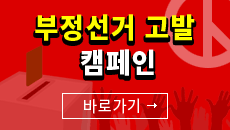|
 By Park Tae-woo By Park Tae-woo
When we measure the fairness of international society regarding the implementation of the rule of law, nobody is quite confident of its fairness. Our commitment to the rule of law should be measured against our readiness to see the standards that we wish to impose on others applied to our fellow citizens.
Kofi A. Annan, former U.N. secretary general argues in his article ``Justice vs. impunity," published in the International Herald Tribune on June 2, that the establishment of the International Criminal Court followed the gravest of crimes committed in Rwanda and the former Republic of Yugoslavia.
In both cases, as we know to our shame, the United Nations and international community failed to take decisive and forceful action to protect the victims.
In this regard, he insists that our challenge is to protect the innocent by building a court so strong, universal and effective that it will deter even the most determined of despots.
Remembering those key justice issues of the international community, I could shout out the dark sides of our world full of discrimination, oppression, inequality, and prejudices of the strong or the rich against the weak or the poor around the globe during one of my English lectures on the world Peace and Security in Korea University.
Could we solve this problem of the unprotected with clear vision and policy measures made by the international community?
If national sovereignty cannot protect its own people from human rights abuses, physical insecurity and mental devastation, could international society intervene in the internal issues of a certain country?
State sovereignty implies responsibility, and the prime responsibility for the protection of its people lies with the state itself. When a population is suffering serious harm as a result of internal war, insurgency, repression or state failure, and the state in question is unwilling or unable to halt or avert it, the principle of non-intervention yields to the international responsibility to protect the justice of international society.
For example, in the case of North Korea, the sensitive issue of political prisoners' camps with estimated numbers of more than 200,000 prisoners suffering from oppression in isolated places, could fall into this category of clear state failure for North Korea to protect the basic human rights of its own people.
This kind of oppression and backward human dignity from the humanitarian viewpoint should not be left unattended by the name of state sovereignty.
Along with the North Korean refugees, these political prisoners' issues should be taken care of by the concept of international justice and ``the responsibility to protect."
Furthermore, North Korea's recent torpedo attack on South Korea's warship the Cheonan could be a case to put the issue to the International Criminal Court (ICC), based upon the Rome Statute.
We all understand that the foundations of the responsibility to protect, as a guiding principle for the international community of states lie mainly in the specific legal obligations under human rights and human protection declarations, covenants and treaties, international humanitarian law and national law.
If we fail to perform the prime responsibility to prevent in advance, to address both the root causes and direct causes of internal conflict and other manmade crises putting the population at risk, we should practice the responsibility to react and respond to situations of compelling human need with appropriate measures, which may include coercive measures like sanctions and international prosecution, and in extreme cases military intervention.
Coming back to the realities of the North Korean regime's rigidity, as was shown in talks over North Korea's denuclearization, it is never an easy approach to intervene in North Korea's domestic issues in the name of international justice and its responsibility to protect.
There is not actually a large enough scale of loss of life or ethnic cleansing to define the situation into the category that there must be serious and irreparable harm occurring to human beings, or imminently likely to occur.
However, it clearly is a typical case of human rights and dignity abuses and camps are indirect murderous acts in the name of illegitimate state sovereignty. We should stick to the basic consensus that the international community has a responsibility to act decisively when states are unwilling or unable to fulfill these basic responsibilities.
Meeting these challenges is more than a matter of aspiration. It is a vital necessity. Nothing has done more harm to our shared ideal that we are all equal in worth and dignity and the earth is our common home, than the inability of the community of states to prevent genocide, massacres and ethnic cleansing.
If we believe that all human being are equally entitled to be protected from acts that shock the conscience of us all, then, we must match rhetoric with reality and principle with practice. We cannot be content with reports and declarations.
We must be prepared to act. We will not be able to live with ourselves if we do not. And the North Korean case should not be an exception just because those abuses do not involve a large scale loss of life or ethnic cleansing.
Dr. Park Tae-woo is a visiting professor at department of diplomacy at National ChengChi University in Taiwan. He has also recently lectured on international issues in prominent universities such as Korea University, Kyunghee University, Incheon University and Pai Chai University. He also serves as director of public relations at the Korean Political Science Association (KPSA) in 2010, honorary consul of East Timor in Korea, and president of the Blue Politics and Economy Institute. He can be reached at t517@naver.com.
|









